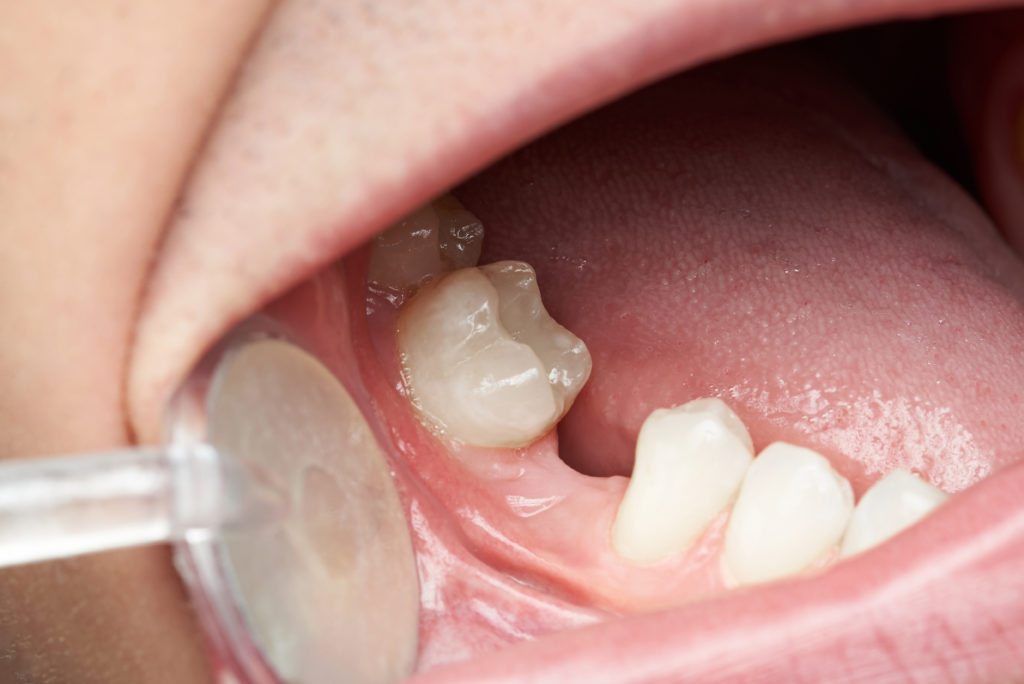Why Replacing Lost Teeth Is Important

If you have just had your tooth extracted, you may be wondering if it is really necessary to replace that tooth, especially if the tooth is not immediately visible when you smile. However, your mouth is naturally accustomed to having a mouth full of teeth and choosing not to replace your lost tooth can have serious consequences.
Losing teeth isn’t just about appearances—it can affect your ability to chew, speak, and maintain overall oral health. Replacing missing teeth helps prevent issues like shifting teeth, bone loss, and further dental complications.
With Cherry Financial Services and our Membership Program, we make tooth replacement affordable and accessible. Cherry offers flexible payment plans with 0% APR options, while our Membership Program provides discounted preventive care and reduced costs on other treatments.
Additionally, we partner with Care Credit to offer even more payment flexibility. Let’s restore your smile and protect your oral health with options tailored to your budget.
Why is it the best option to replace a lost tooth?
One of the most serious consequences of not replacing your lost tooth is bone loss or bone resorption. Your teeth are connected to your jaw bone through their roots and this connection constantly stimulates this area of the jaw bone.
When your tooth is lost, so is this stimulation. Without proper bone stimulation, the bone begins to be reabsorbed into the body causing the jaw bone to become frailer.
When your jaw bone begins to lose bone mass, this can cause problems for the teeth in the immediately surrounding area. As a result of bone loss, you are at a much higher risk of losing the teeth on either side of the missing tooth.
A loss of bone mass can also cause your facial structure to change. Soft tissues rely on the bone for support and without this support, they will begin to look more sunken and asymmetrical, causing your entire facial appearance to change.
What is malocclusion of the teeth?
Another consequence of not replacing your lost tooth is the risk of malocclusion. Malocclusion refers to the improper alignment of the teeth when the jaw is closed.
There are many different types of malocclusion including an upper protrusion, misplaced midline, open bite, overbite, underbite, crossbite, rotation, or transposition. All these malocclusions cause reduced functionality and additional strain on the temporomandibular joint.
Malocclusion can occur as a result of tooth loss because the missing tooth is not replaced. When a gap is left in the mouth, the surrounding teeth will naturally shift as an attempt to fill this gap.
There can also be problems with the teeth directly opposite of the missing tooth. Teeth opposite from a gap will also attempt to fill this gap by a process called super eruption, or overgrowing.
Both the shift in surrounding teeth or the super-eruption of opposite teeth can change the entire alignment of your bite and will cause you more issues.
A final consequence of not replacing your lost tooth is that you will have issues with chewing and eating certain foods. The exact nature of this difficulty is dependent on the type and location of the lost tooth.
However, no matter what the type or location, chewing with a missing tooth with inadvertently cause you to compensate and put more pressure on other teeth. This may lead to toothaches, teeth trauma, or premature wear.
What’s an affordable way to replace teeth?
Nowadays, there are many options for replacing a lost tooth such as dentures, dental bridges, and dental implants. The option you choose depends on your specific needs.
One option is a partial denture. This is a removable piece with one or more teeth attached. It’s like a puzzle piece that fits into your mouth and fills the gap.
Partials are the cheapest option, and you can take them out at night to clean. Another is a bridge. This is a false tooth that attaches to the teeth next to the gap. It’s fixed, meaning it doesn’t come out and is usually less expensive than implants.
For something more permanent, implants are an option. Implants are metal posts in your jawbone with a crown on top. They’re more expensive but very natural feeling.
Schedule a consultation with Dr. Colleen Bullard today and find out what option will work the best for you!
Categories
Archive